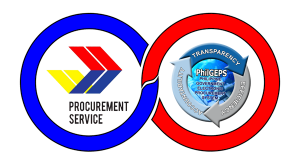To successfully negotiate the complex network of legal duties, firms must remain ahead of regulatory changes in the ever-evolving field of corporate compliance. The Securities and Exchange Commission (SEC) recently announced a major reorganization that has caused apprehension in executive offices and boardrooms across the country. As of April 1, registered corporations will pay a higher penalty for being late or failing to comply with their reportorial obligations. As the SEC Conf irms Higher Fines, businesses are preparing for more compliance efforts.

New Penalties Imposed by SEC: What Businesses Need to Know
The Securities and Exchange Commission (SEC) has recently announced significant adjustments to penalties for non-compliance with certain regulations, particularly MC 28, Series of 2020.
This mandate requires corporations to establish designated email accounts and mobile numbers for transactions with the commission. The move comes as a response to the outdated penalty scale, which had been in effect for over two decades.
Impact on Businesses
These revisions are not just minor tweaks; they have far-reaching implications, especially for the business-to-business (B2B) sector. Companies operating within this sphere must pay close attention to the changes and ensure strict adherence to the updated regulations. Failure to do so could result in substantial financial penalties.
Penalties Under the New Advisory
Penalties under the updated scale differ based on the kind and size of the company. For example, domestic stock businesses and one-person corporations (OPCs) with retained income of P100,000 or less are now subject to fines of P5,000 for late filing and an additional P1,000 for each month that the infringement persists. Likewise, the same penalties apply to domestic non-stock corporations whose equity or fund balance does not exceed P100,000.
Increased Scrutiny for Non-Compliant Businesses
These adjustments also have an impact on foreign businesses that conduct business in the Philippines. If reports are filed after certain deadlines, foreign stock companies with combined equity less than P100,000 may be subject to fines of up to P10,000 in addition to additional late penalties. Foreign non-stock corporations with income under P100,000 are subject to the same rules.
Adjustments for Both Local and International Firms of All Sizes
The penalty for breaking MC 28 has been quadrupled by the SEC from P10,000 to P20,000. For companies of all sizes, timely and accurate reporting is essential in light of this increased scrutiny.
Regulatory Landscape
In light of these developments, businesses must prioritize compliance with reportorial requirements mandated by Republic Act 11232, also known as the Revised Corporation Code. Proactive measures, such as thorough record-keeping and regular communication with regulatory bodies, can help mitigate the risk of penalties and maintain a favorable standing within the industry.
Implications for Brands and Consumers
The SEC’s penalty changes have an influence on both consumers and brands outside of the corporate sphere. Consumer-facing goods and services are probably going to suffer as a result of firms having to deal with more oversight and even financial penalties.
Impact on Brands
For brands, maintaining compliance with regulatory requirements is integral not only for avoiding penalties but also for safeguarding corporate integrity. Non-compliance can tarnish a brand’s reputation, eroding consumer trust and loyalty. With the SEC’s heightened penalties, brands must prioritize transparency and accountability in their operations to preserve consumer confidence.
Consumer Expectations and Accountability
On the other side, consumers are growing more critical of companies and holding them responsible for more than simply the goods they sell. Information regarding a company’s regulatory compliance—or lack thereof—can travel quickly through social media and online platforms in today’s digitally connected world. Customers are, therefore, more inclined to associate themselves with companies that exhibit a dedication to moral business conduct and legal compliance.
Transparency and Consumer Trust
Brands are encouraged to improve their transparency and consumer communication by the SEC’s penalty adjustments. Brands can cultivate consumer trust and loyalty by proactively addressing regulatory compliance in their corporate message and marketing campaigns. Additionally, companies that prioritize compliance are better able to handle legal issues and keep their competitive advantage in the marketplace.
Empowering Informed Decision-Making
The alterations in regulations enable customers to make better-informed selections when making purchases. Customers can choose brands that correspond with their values by looking at a company’s history of regulatory compliance. Furthermore, as brands become more transparent, they create a culture of accountability and inspire other companies to maintain comparable compliance and integrity standards.
Imperative for Modern Businesses
Companies that place a high priority on meeting regulatory requirements on time show that they are dedicated to professionalism and operational excellence. Organizations can reduce risks, expedite procedures, and keep a competitive edge in their respective markets by proactively managing deadlines. Moreover, firms trying to negotiate the challenging landscape of compliance must be up to date on revisions and modifications to regulations.
Informed and Adaptive
By keeping a close eye on regulatory releases on a regular basis or by interacting with trade associations and legal professionals, knowledgeable businesses can adjust their plans in advance and reduce compliance risks before they become more serious. In a regulatory environment that is becoming more and more dynamic, companies can position themselves for long-term success by incorporating a culture of deadline consciousness and proactive information-seeking into their operations.
Proactive Compliance
Additionally, by taking a proactive stance in keeping abreast of regulatory developments, firms can position themselves to anticipate obstacles, adjust quickly, and take advantage of opportunities in a dynamic industry. In this context, compliance transforms from a legal need into a competitive advantage that builds customer confidence, strengthens brand recognition, and promotes long-term viability.
Businesses can secure their place in the market, negotiate uncertainty with confidence, and start down the path to long-term success by embracing compliance as a core value and incorporating it into their daily operations.

In conclusion, the significance of regulatory compliance in the current business climate is underscored by the SEC’s recent modifications to fines. Businesses may confidently and honorably negotiate the changing regulatory landscape by remaining informed and putting best practices into effect. As businesses navigate these changes, transparency, accountability, and integrity will remain central tenets in fostering trust and loyalty in an ever-evolving marketplace.









